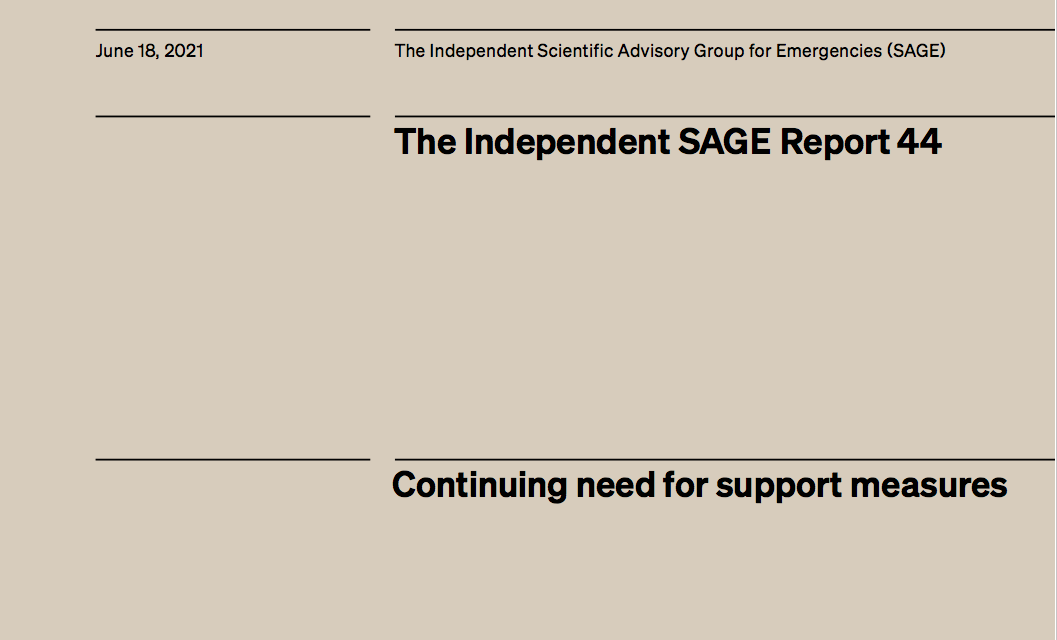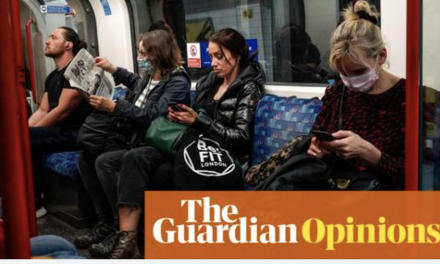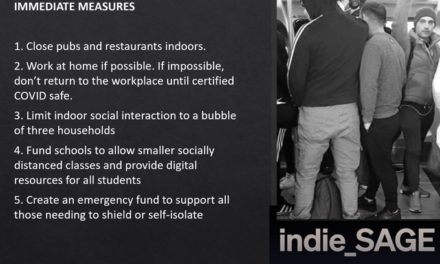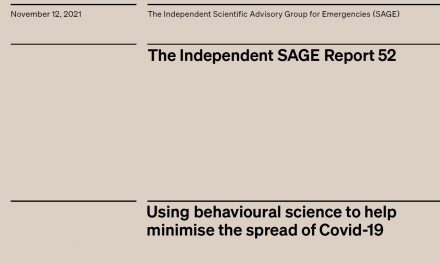Continuing need for support measures
In his statement of 14th May 2021i – just prior to the reopening of businesses, indoor hospitality and indoor mixing the following Monday – the Prime Minister, Boris Johnson said that: “as we move away from living our lives by government rules and as we learn to live with this virus, then…, we need to make our own decisions about how best to protect ourselves and our loved ones – informed by the risks”.
He explained that “We will not be preventing businesses from reopening on Monday, but we will be asking you to do your bit”. He stressed that “it is more vital than ever that you play your part in stopping the spread”. And he spelled out what that meant: “please get tested twice a week for free, get a jab if you are eligible; remember hands, face, space and fresh air; observe social distancing from those you do not know; and if you are seeing loved ones think really carefully about the risk to them”.
The Prime Minister expressed confidence in the success of such a strategy – “I want us to trust people to be responsible and to do the right thing” – and he concluded with a call to “exercise caution and common sense”.
This emphasis on personal responsibility and ‘common-sense’ as the solution to the pandemic (especially as the Government lifts formal restrictions) has two dangerous consequences. The first is that it suggests that problems with the pandemic derive from lack of responsibility and common- sense on behalf of the publicii. Accordingly, the Health Secretary, Matt Hancock explained the upsurge of infection in Bolton on patients who had “chosen not yet to get (vaccinated)”iii.
The second consequence of placing the emphasis on what the public must do is that it takes the emphasis off what the Government must do. Indeed, in equating a sense of responsibility with doing the right thing, the Prime Minister implies that all the things he asks for – getting vaccinated, getting tested, social distancing, getting fresh air – are all a matter of individual choice. This goes against both what we know in general about health behaviours which are about having the resources as much as the motivation to activ. In also goes against the evidence from this pandemic which shows that differences in adherence to ‘lockdown’ were more about being able to afford to stay at home than about wanting to stay at homev and also willingness to get tested was impacted by one’s ability to self-isolate should the result be positivevi.
Consequently, while it is quite right to propose that people get vaccinated, tested and observe Covid safeguards, it is quite wrong to suggest that they do so on their own. So while the lifting of restrictions may lead to an increased emphasis on the public appraising and responding to risks, this cannot work if the Government fails to provide (or worse, removes) the forms of support which are necessary for members of the public “to do the right thing”.
In this paper, then, we outline the various forms of support which the Government must continue to provide both in the present and after formal Covid restrictions are removed in order to sustain those behaviours that they are asking of the public.





